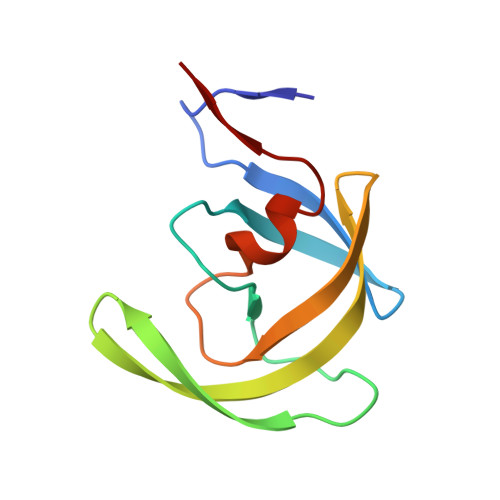Design of Mutation-resistant HIV Protease Inhibitors with the Substrate Envelope Hypothesis.
Chellappan, S., Kiran Kumar Reddy, G.S., Ali, A., Nalam, M.N., Anjum, S.G., Cao, H., Kairys, V., Fernandes, M.X., Altman, M.D., Tidor, B., Rana, T.M., Schiffer, C.A., Gilson, M.K.(2007) Chem Biol Drug Des 69: 298-313
- PubMed: 17539822
- DOI: https://doi.org/10.1111/j.1747-0285.2007.00514.x
- Primary Citation of Related Structures:
2PSU, 2PSV - PubMed Abstract:
There is a clinical need for HIV protease inhibitors that can evade resistance mutations. One possible approach to designing such inhibitors relies upon the crystallographic observation that the substrates of HIV protease occupy a rather constant region within the binding site. In particular, it has been hypothesized that inhibitors which lie within this region will tend to resist clinically relevant mutations. The present study offers the first prospective evaluation of this hypothesis, via computational design of inhibitors predicted to conform to the substrate envelope, followed by synthesis and evaluation against wild-type and mutant proteases, as well as structural studies of complexes of the designed inhibitors with HIV protease. The results support the utility of the substrate envelope hypothesis as a guide to the design of robust protease inhibitors.
- Center for Advanced Research in Biotechnology, University of Maryland, Biotechnology Institute, Rockville, MD 20850, USA.
Organizational Affiliation:



















